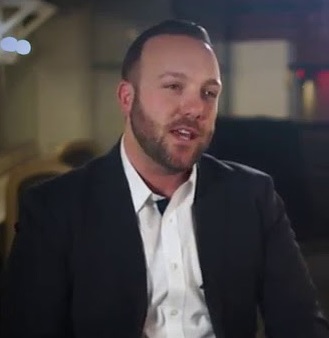The Peril of Soft Leadership: Why It Can Cripple Your Sales Team
In the demanding world of sales, strong leadership is the difference between a team that achieves and one that stagnates. While fostering a positive work environment is crucial, some leaders fall into the trap of “soft leadership” – often out of fear of people leaving and creating an empty “seat” on the team. This approach prioritizes congeniality over accountability and results, ultimately creating a disservice to everyone involved.
Here’s why soft leadership can be a disservice to your sales team:
1. Lack of Direction and Clarity:
Soft leaders often shy away from providing clear direction and setting high expectations. Vague goals and a “go with the flow” attitude leave salespeople feeling lost and unsure of what success looks like. Without a clear roadmap, achieving targets becomes a frustrating guessing game. This lack of clarity can be unfair to high performers who want to push themselves and can be demotivating for those who need guidance.
2. Unwillingness to Address Performance Issues:
Difficult conversations are a reality of leadership. Soft leaders, however, often avoid addressing underperformance. This creates a breeding ground for mediocrity, as struggling salespeople continue bad habits with little to no course correction. The team misses targets, and morale suffers as high performers witness a lack of consequences. A strong leader addresses issues fairly and supportively, ensuring everyone has the opportunity to improve and contribute to the team’s success.
3. Inability to Coach and Develop Talent:
Exceptional salespeople aren’t born, they’re made. Great sales leaders invest time in coaching and development, pushing their team members to reach their full potential. Soft leaders, on the other hand, shy away from constructive criticism and feedback. This hinders growth, leaving talent untapped and hindering the team’s overall success. Strong leadership fosters a culture of continuous learning, which benefits everyone on the team.
4. Erosion of Accountability:
In a soft leadership environment, accountability becomes a nebulous concept. Deadlines are flexible, missed quotas get brushed aside, and ownership for mistakes is diffused. This lack of accountability breeds a culture of complacency, where salespeople prioritize comfort over exceeding targets. A strong leader holds everyone accountable in a fair and consistent manner, ensuring everyone contributes their best effort.
5. Inability to Handle Pressure:
Sales is inherently high-pressure. Soft leaders may struggle to motivate and inspire their team during challenging periods. When faced with tough competition or market downturns, a lack of strong leadership can lead to panic, discouragement, and ultimately, missed goals. Strong leadership provides support and guidance during difficult times, helping the team navigate challenges and achieve their goals.
The Antidote: Building a Strong, Supportive Sales Leadership Style
Effective sales leadership isn’t about being a tyrant. It’s about striking a balance between building a positive, supportive environment and holding your team accountable for achieving results. Strong leadership is, in fact, the fairest approach to everyone involved. Here’s what strong leadership looks like:
- Clear Goals and Expectations: Set ambitious yet achievable targets and create a clear roadmap for reaching them. Communicate these expectations clearly and fairly to everyone on the team.
- Regular Coaching and Feedback: Provide ongoing feedback, identify areas for improvement, and invest in ongoing coaching and development. Deliver feedback constructively and focus on helping each team member reach their full potential.
- Data-Driven Decision Making: Use data and metrics to track progress and identify areas where your team needs support. Analyze data fairly and use it to guide coaching and development efforts.
- Celebrate Successes: Recognize and reward achievements, both big and small, to keep your team motivated. Celebrate successes fairly and inclusively, acknowledging everyone’s contribution.
- Hold People Accountable: Address missed targets and performance issues with a direct yet supportive approach. Hold everyone accountable in a fair and consistent manner, focusing on improvement rather than punishment.
- Lead by Example: Demonstrate high work ethic, strong communication skills, and a commitment to continuous improvement. Be a role model for your team, showcasing the behaviors and work ethic you expect from them.
By adopting a strong, supportive leadership style, you can create a high-performing sales team that thrives in a demanding environment. Remember, fostering a positive work environment is important, but without clear direction, accountability, and a drive for results, your team’s success will remain elusive. Strong leadership creates a fair and supportive environment where everyone has the opportunity to contribute, learn, and achieve their goals.

Many people “talk” sales effectiveness, but few have demonstrated the ability to transfer that effectiveness to entire organizations for high impact. For nearly two decades Tony has not only shared his sales strategy to organizations all over the world, but he has consistently created high performing sales cultures that have impacted the bottom line of hundreds of organizations.